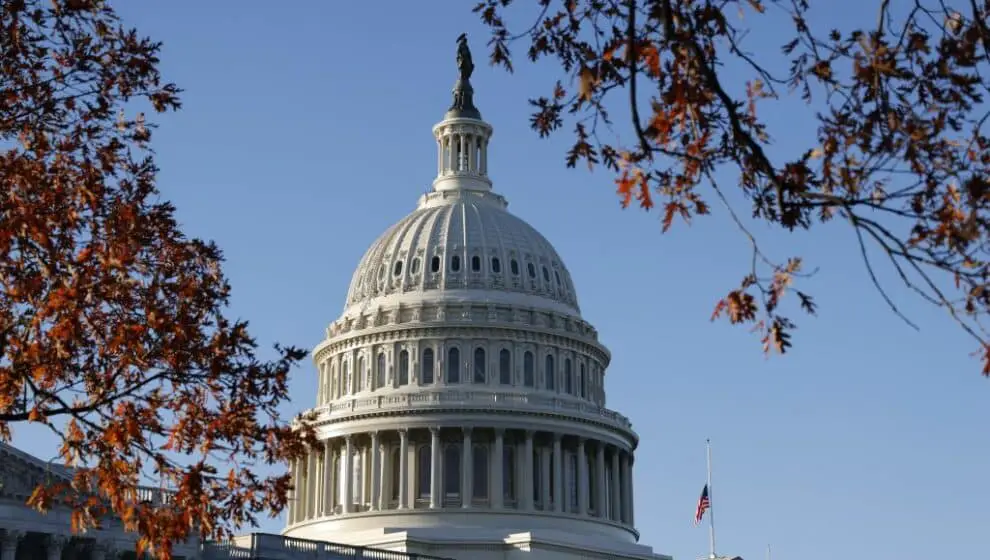Congress is debating whether to pass a huge, 4,000-page, $1.7-trillion year-end spending bill to avoid a government shutdown and fund critical projects.
Key Details
- The U.S. Congress is facing a government shutdown on December 24 if it does not agree to pass a spending bill by the end of the congressional session on Friday, December 23.
- Congressional leaders filed the 4,155-page, $1.7-trillion bill Tuesday morning and is awaiting passage by the U.S. House of Represenatatives and Senate. Votes are expected by Thursday.
- The bill boosts defense by $858 billion, bolsters police spending, provides $45 billion in Ukrainian aid and NATO funds, $41 billion in disaster relief, increases funding to the CHIPS Act with an additional $1.8 billion.
- It also bans the TikTok app on government devices, boosts inflation relief, and adjusts the electoral college procedure, preventing a Vice President from throwing out votes.
- The bill could mark the last major legislation to be passed under the unanimously Democratically controlled congress, with control of the House being taken by Republicans next month.
Why it’s News
Congress is nearing the deadline to pass the bill before the end of this session. The bill contains many mutual compromises and benefits for both parties in the hope that it can be pushed through without debate or contention, as it will need at least 10 Republican votes to pass the Senate.
It’s one of the largest spending bills in recent history, and no real discussion was given to paying for it, through cuts elsewhere or through an increase in taxes.
Congressional Republicans are encouraging their colleagues to delay the vote until the next session—arguing that it is unwise to rush through an agreement to spend this amount of money.
“It could get tied up in the Senate, where any one senator can cause procedural delays that would threaten passage by the deadline. Utah Republican Mike Lee warned on Twitter that senators shouldn’t assume he and others would cooperate with passing the bill by the deadline,” says Bloomberg.
The next session begins on January 3, 2023. Until then, the government would face another shutdown, furloughing non-essential government employees, halting federal small business loans, and halting some government services. A lengthy debate and negotiation that requires approval from the Republican-controlled House of Representatives could reduce the size of the spending bill but take weeks to pass.
Senate Minority Leader Mitch McConnell (R-KY) praised the bill saying, “President Biden wanted to cut defense spending and grow liberal domestic spending in real dollars, but Congress is rejecting the Biden administration’s vision and doing the exact opposite.”
Notable Quote
“The pain of inflation on American families is real, and it is being felt right now across the federal government. From funding for nutrition programs and housing assistance, to home energy costs and college affordability, our bipartisan, bicameral, omnibus appropriations bill directly invests in providing relief from the burden of inflation on the American people,” says Senate Appropriations Chairman Patrick Leahy.
Says an editorial in The Wall Street Journal: “A bill this large—1,500 pages more than last year’s omnibus—can’t be all bad, and this contains a few bright spots. One is $858 billion for defense, a 9.7% increase. That’s $45 billion more than President Biden sought, and it will backfill dwindling weapons stocks, give military members a 4.6% pay raise, and help stabilize the naval fleet, among other urgent needs.”

